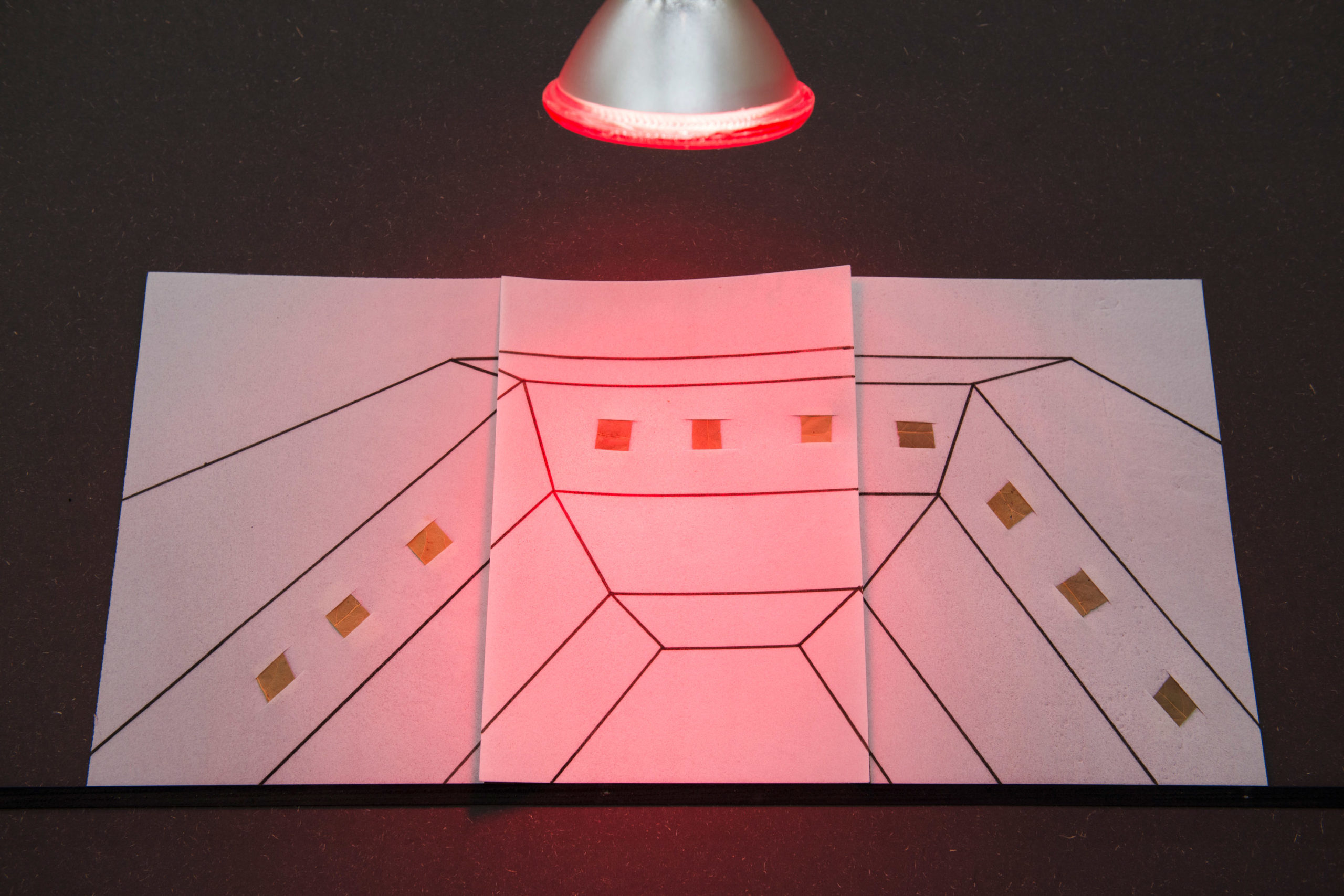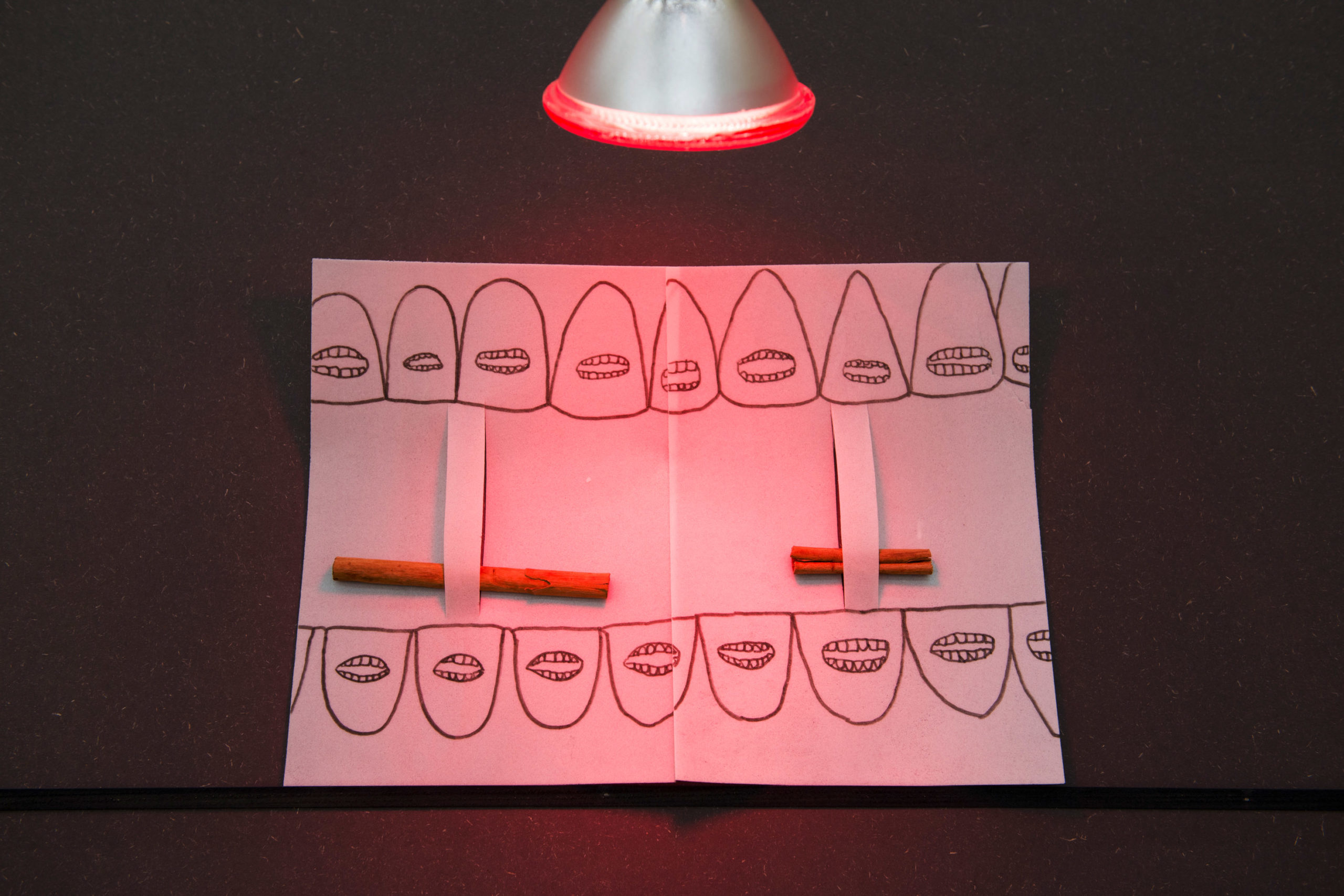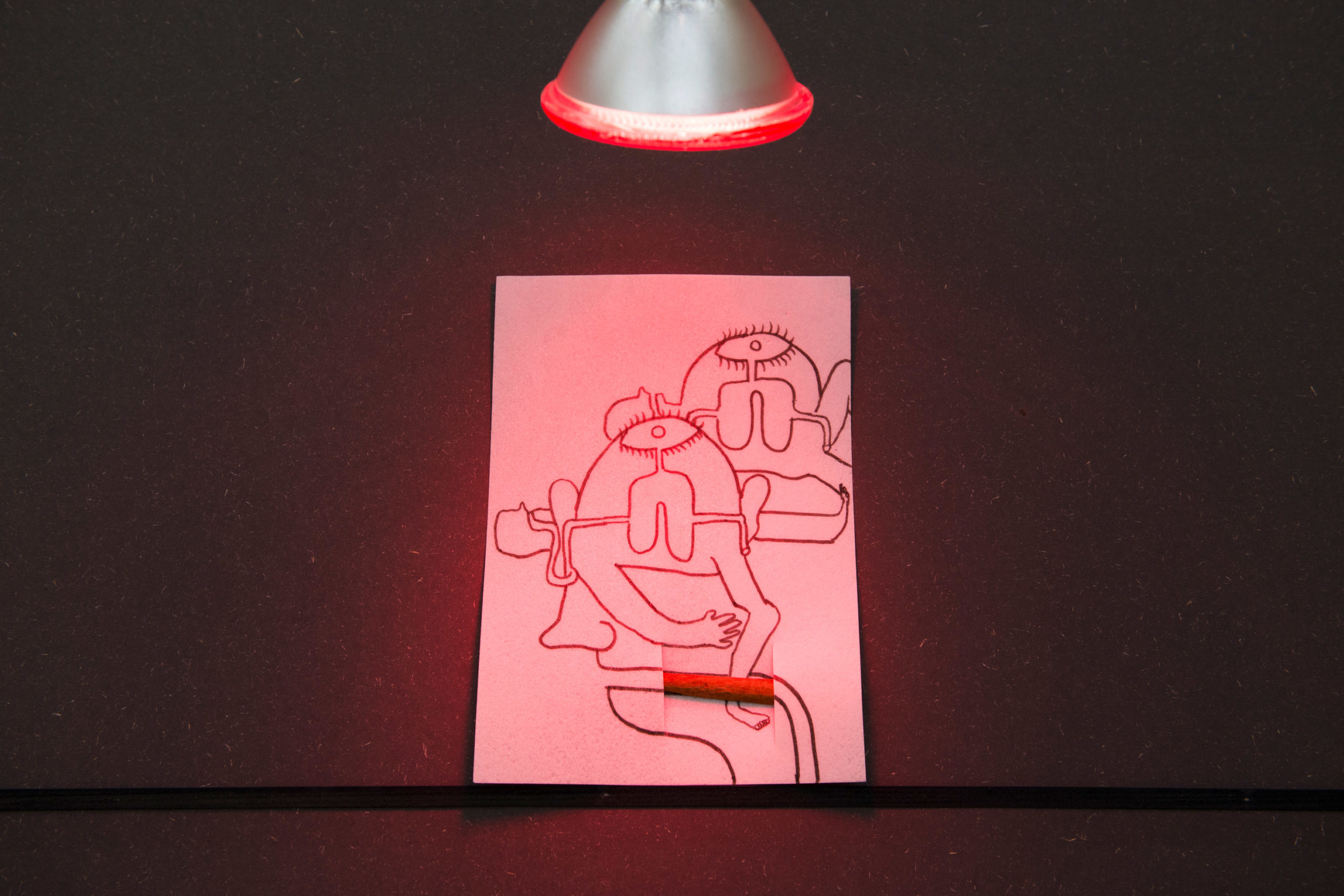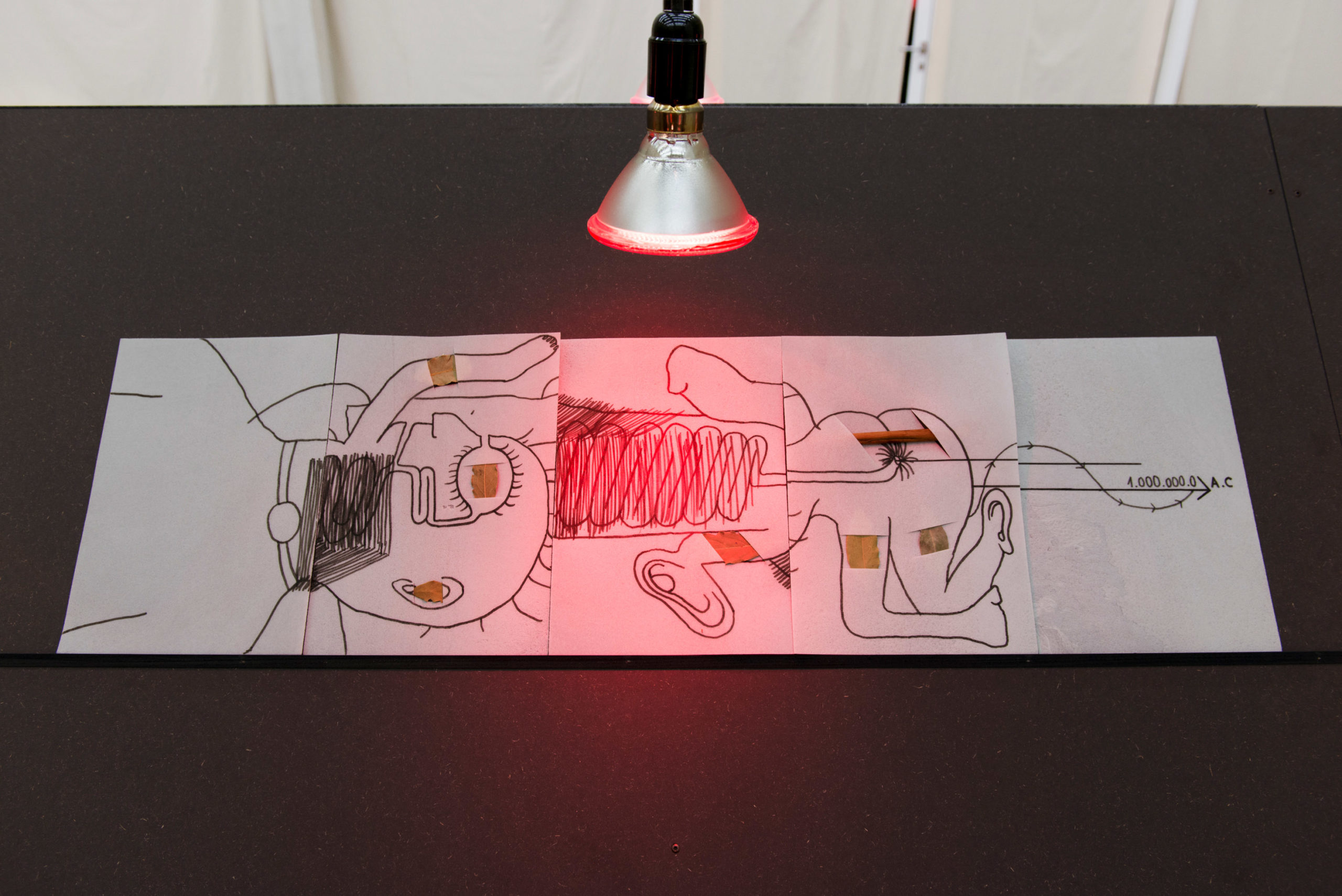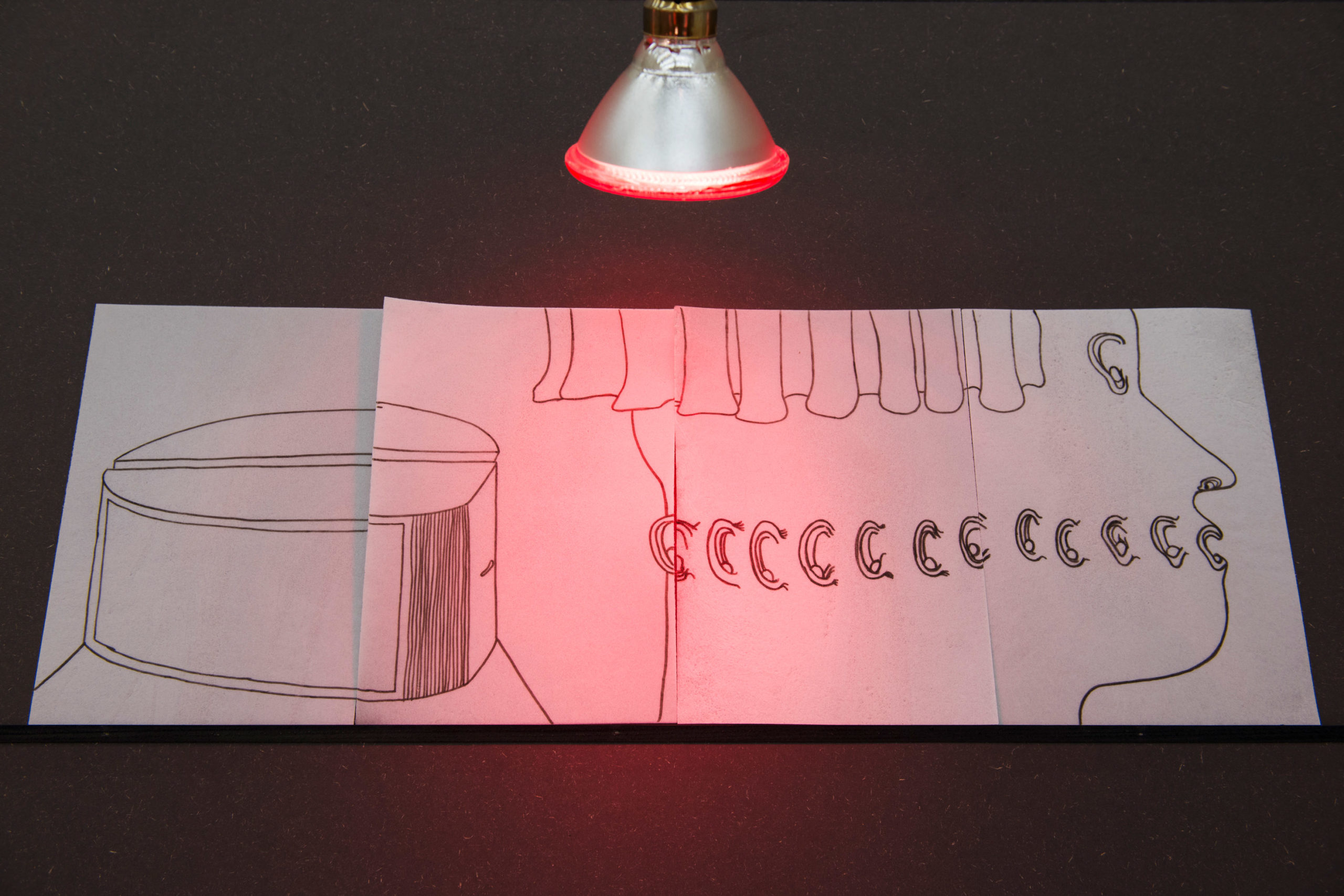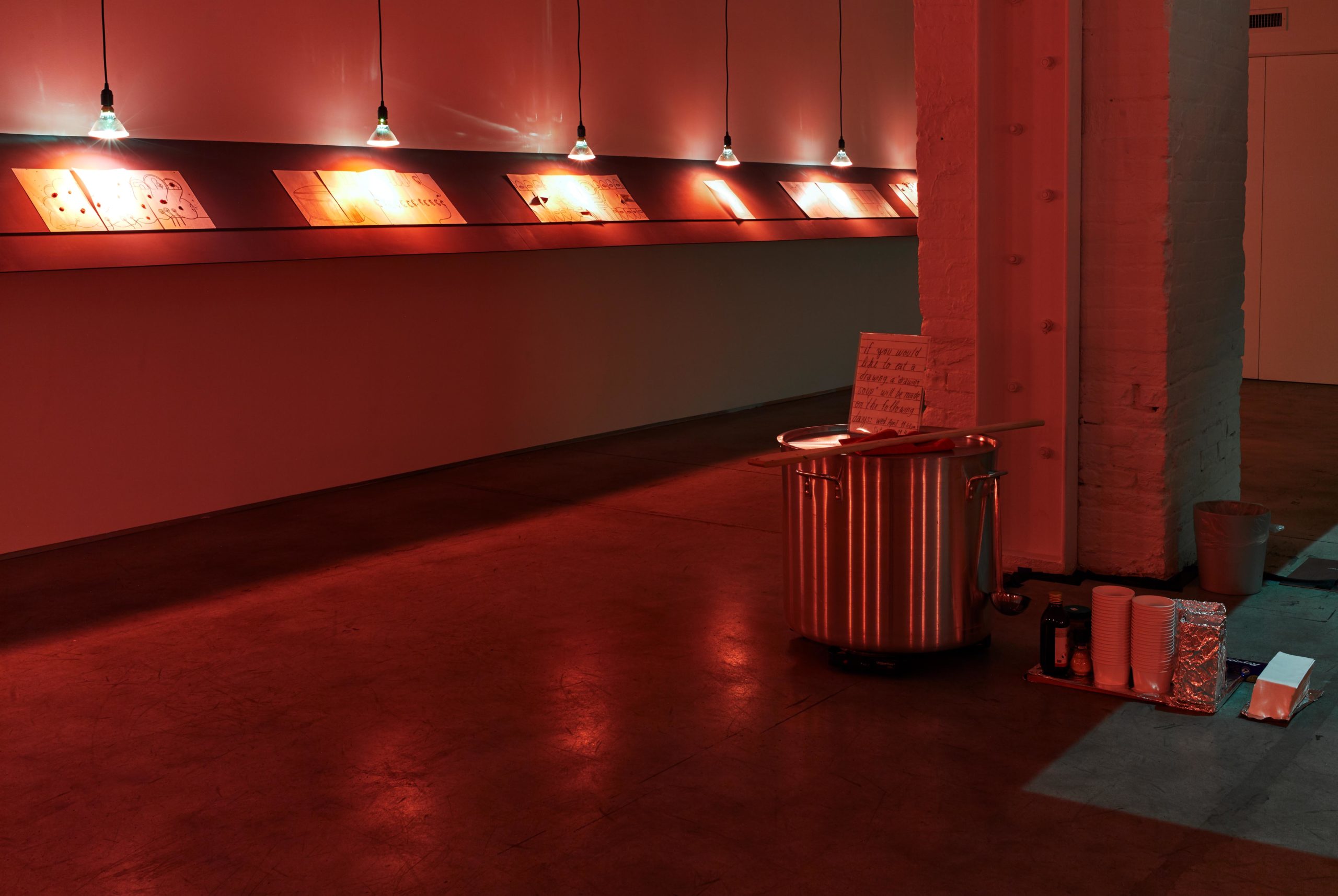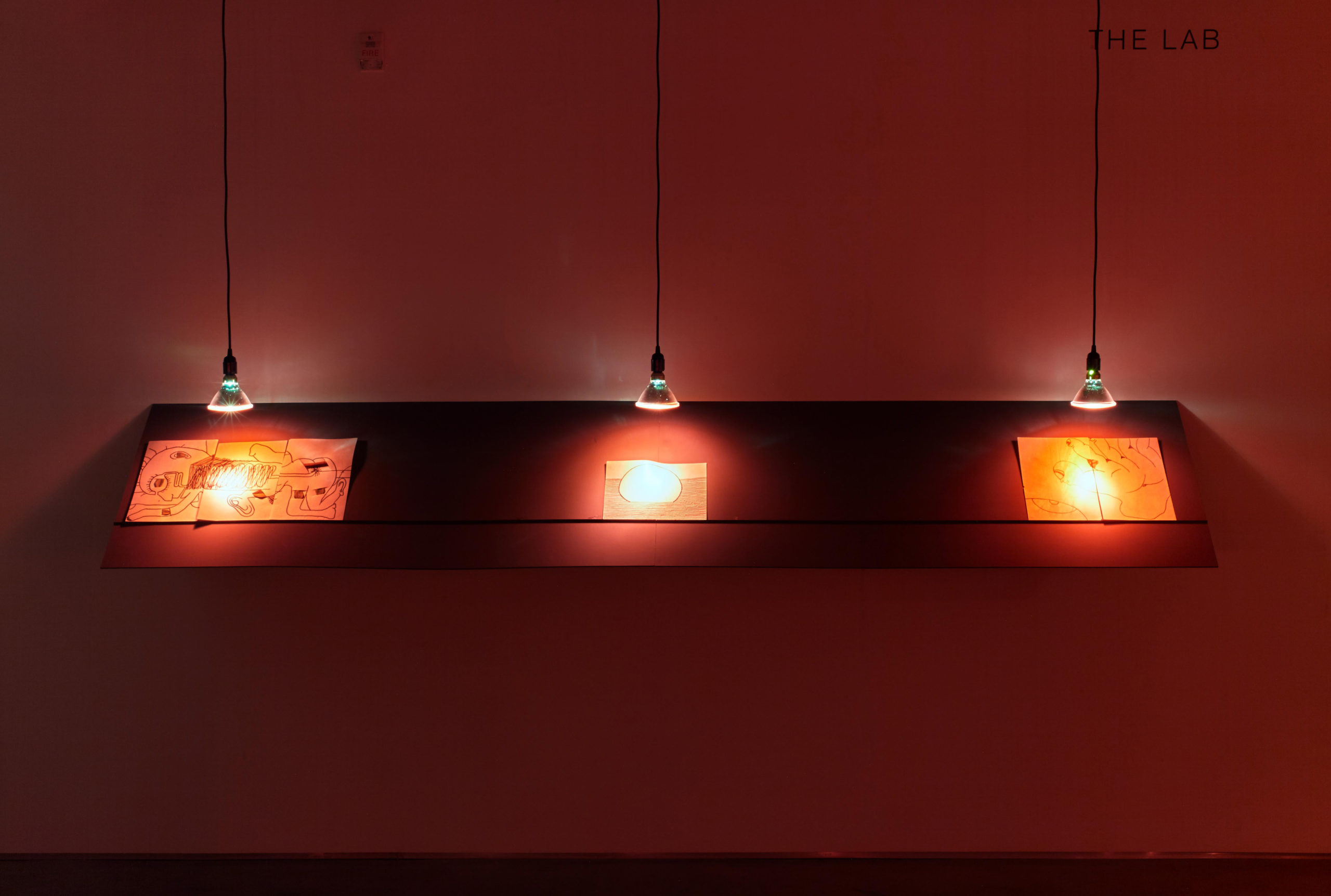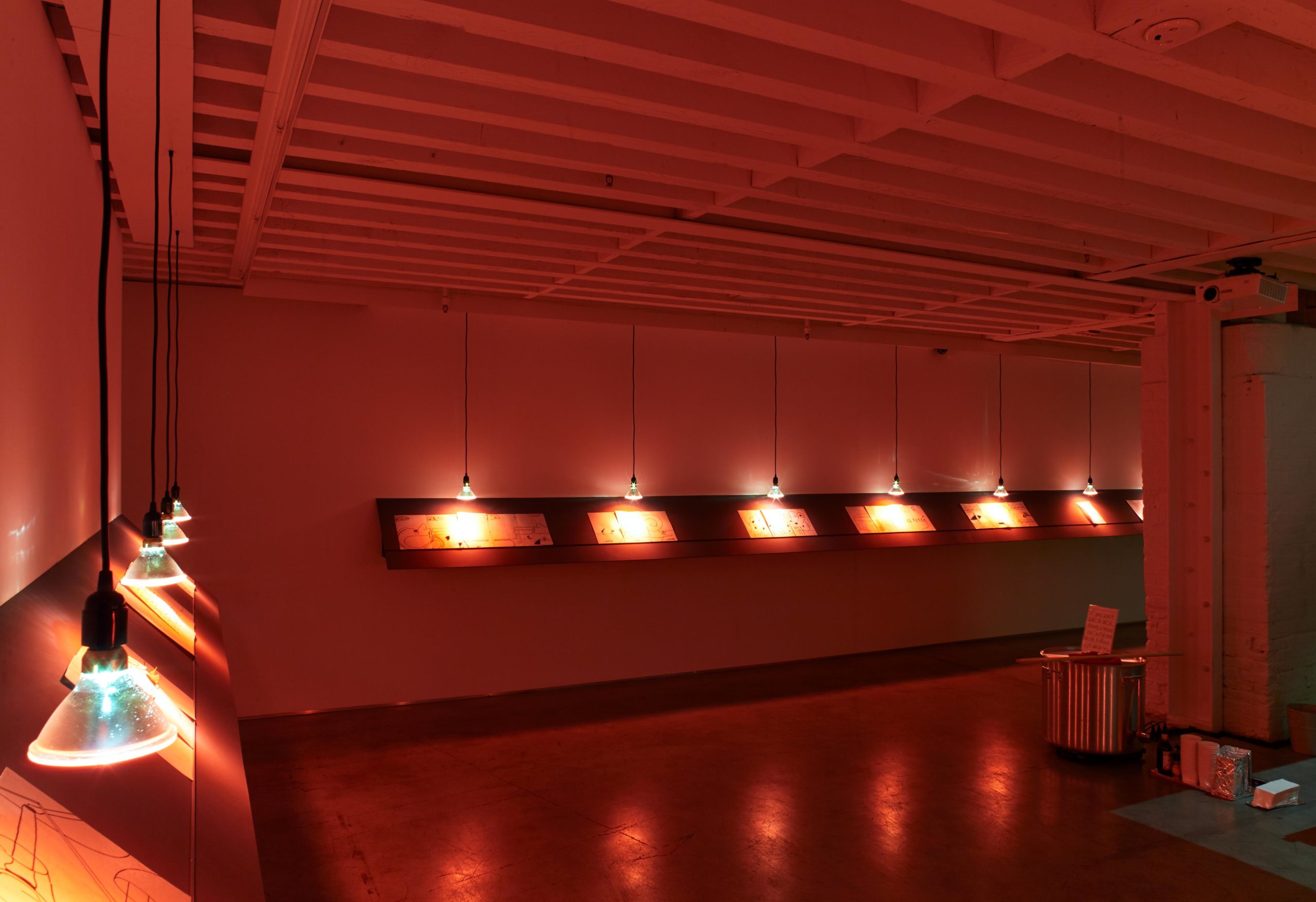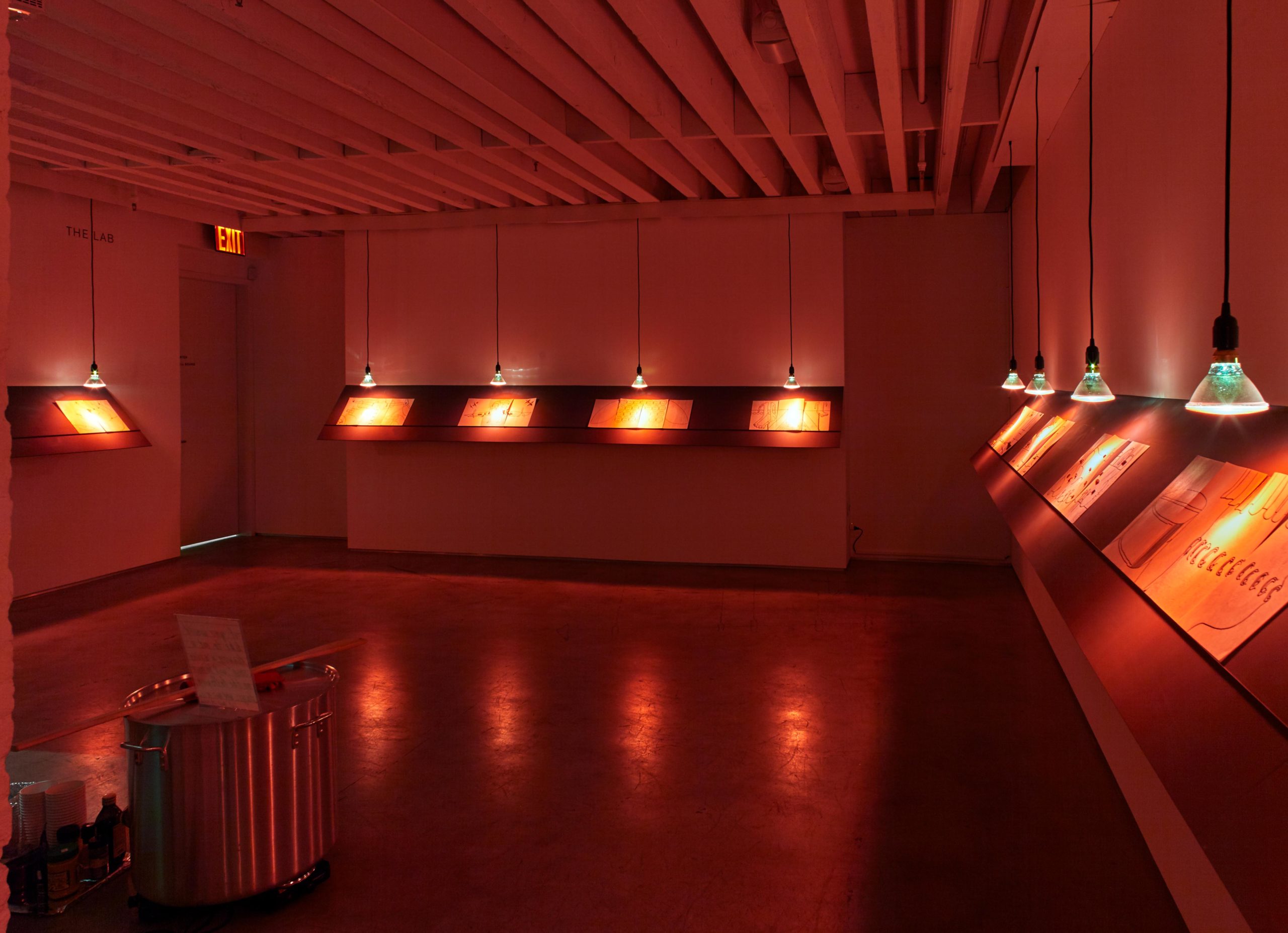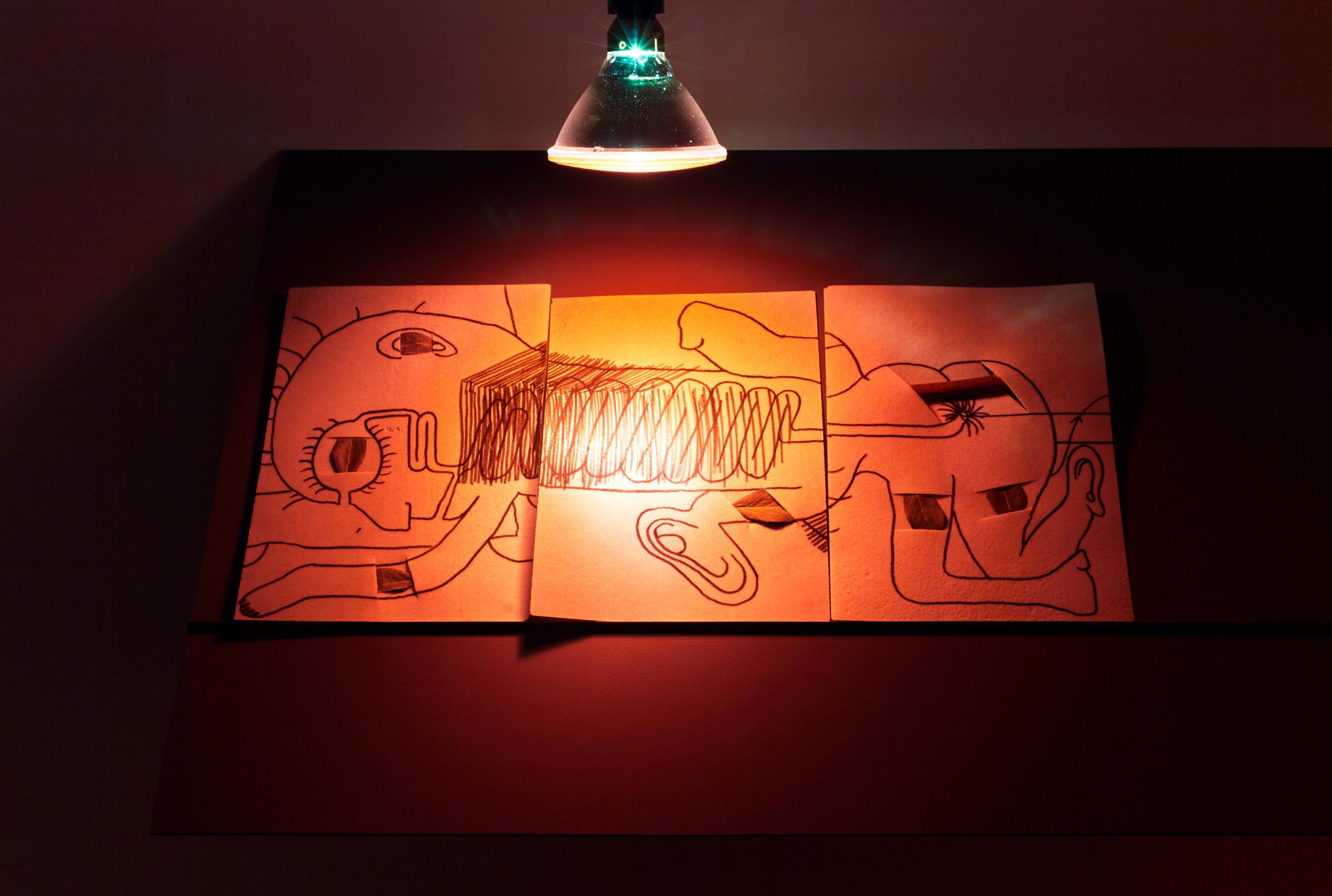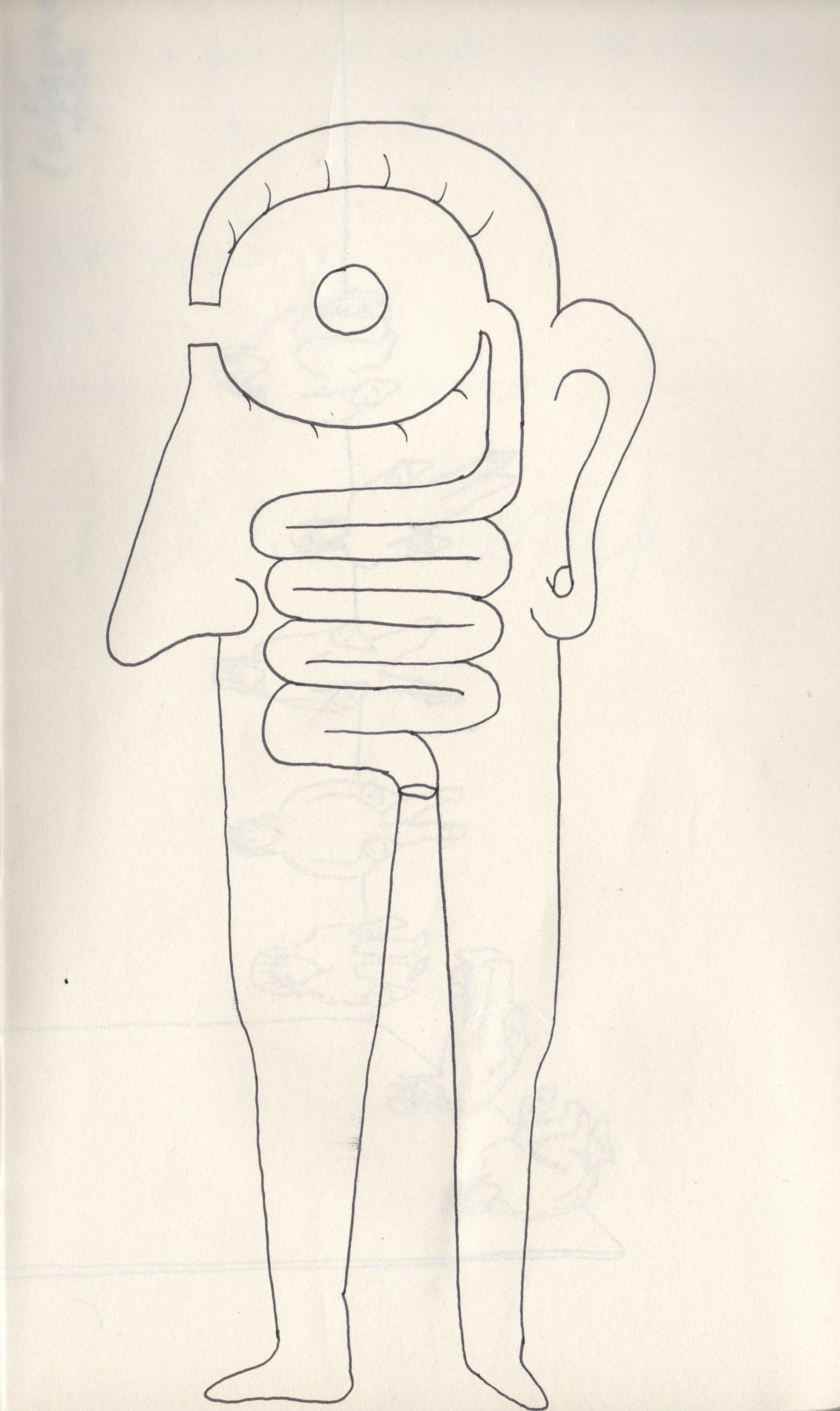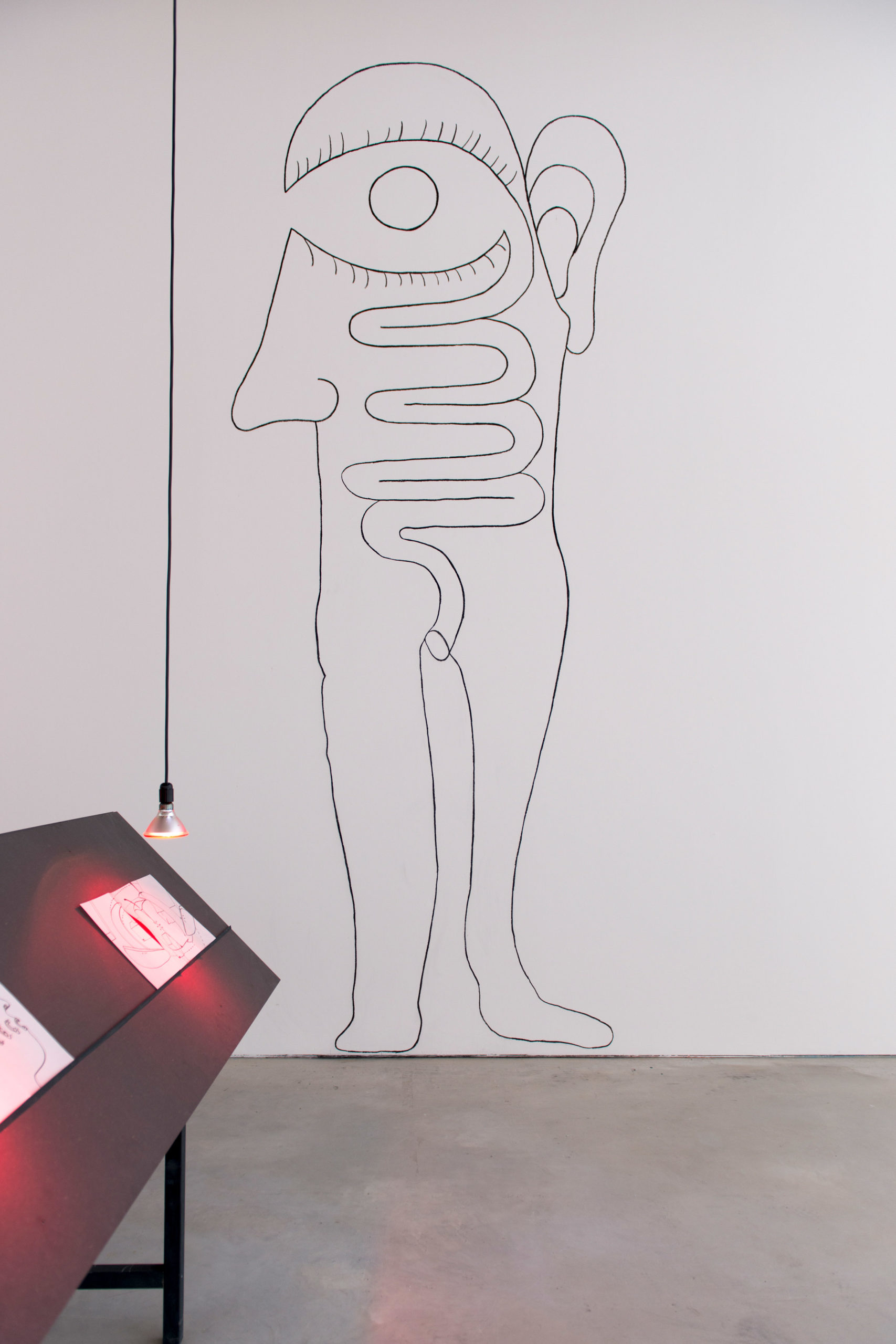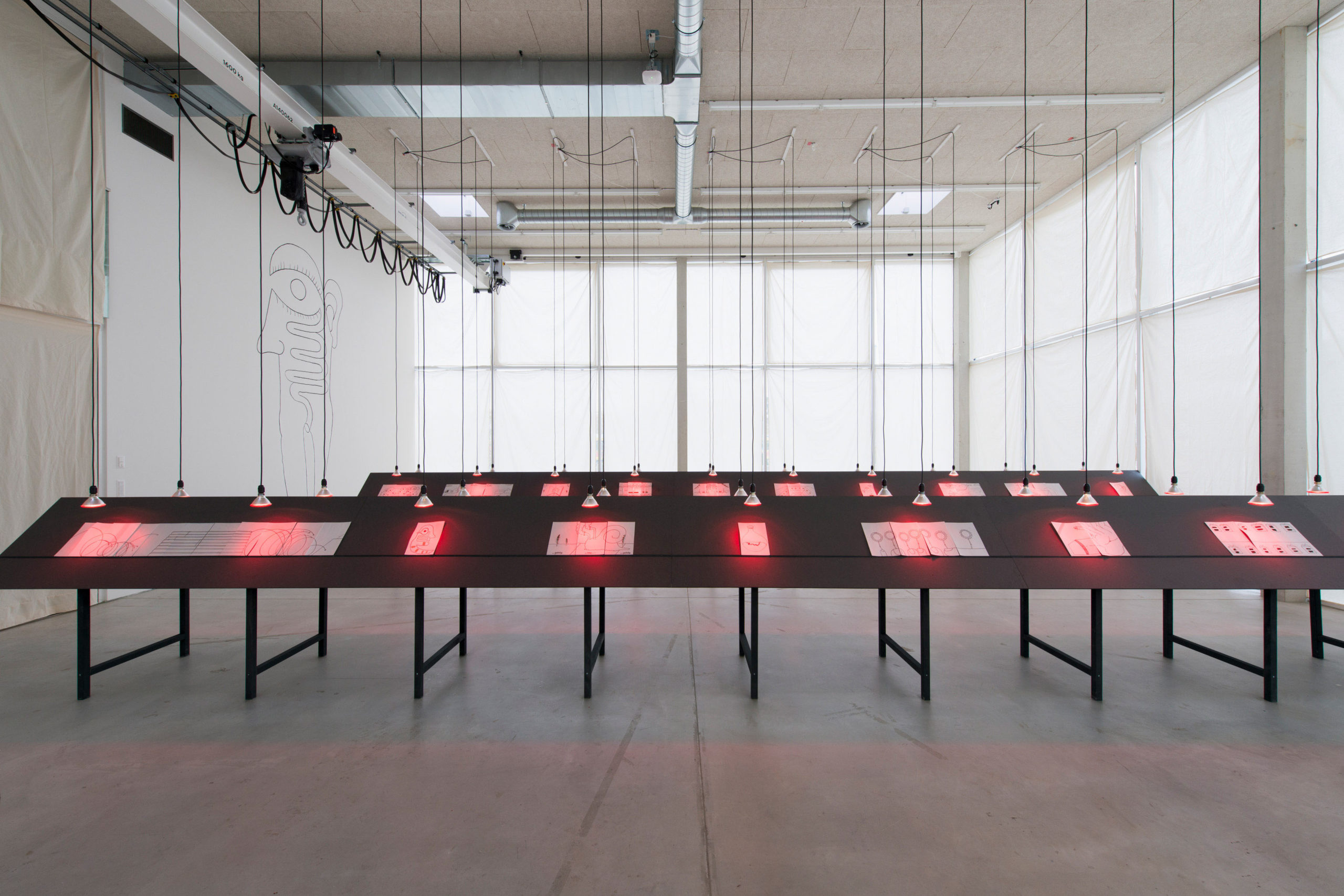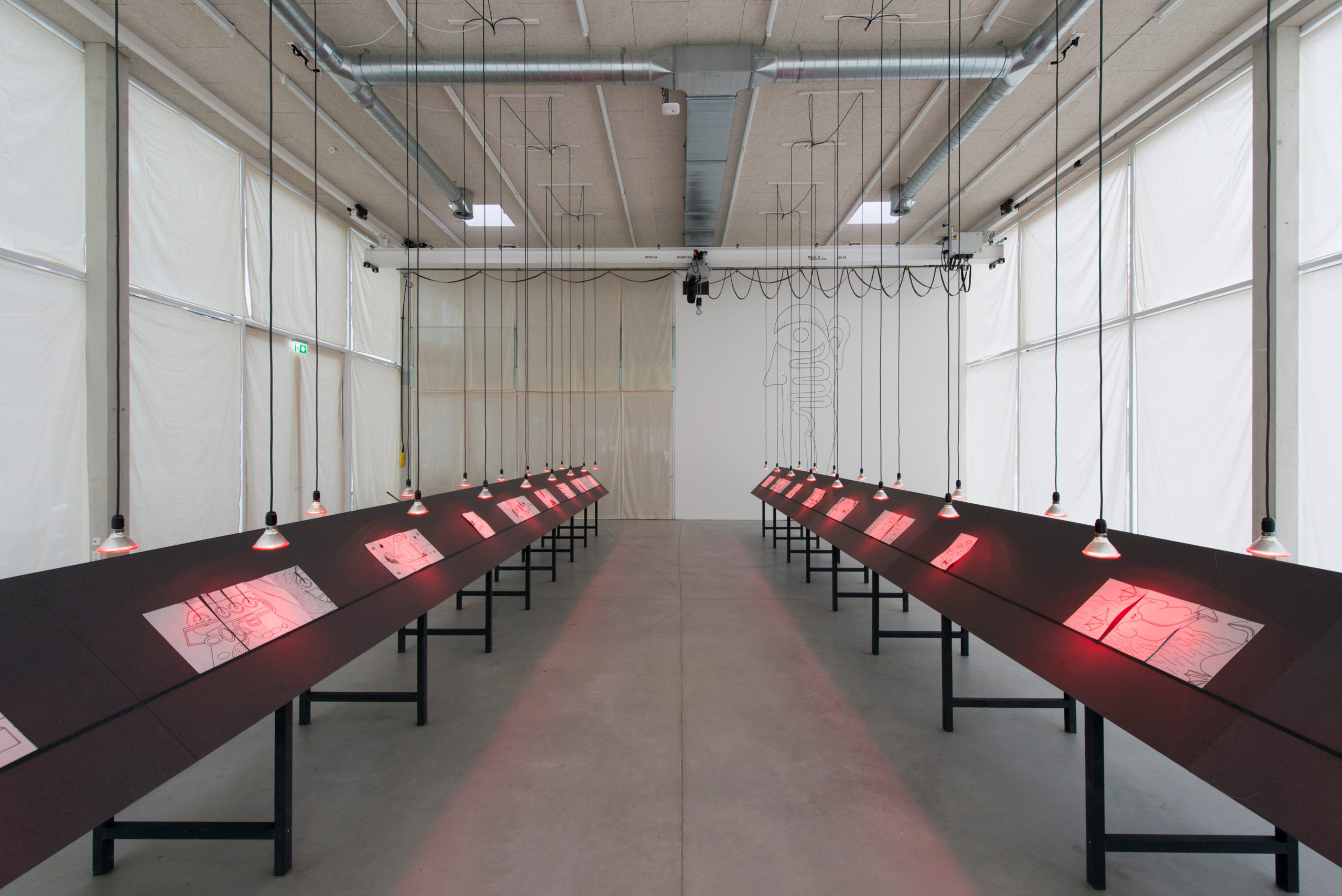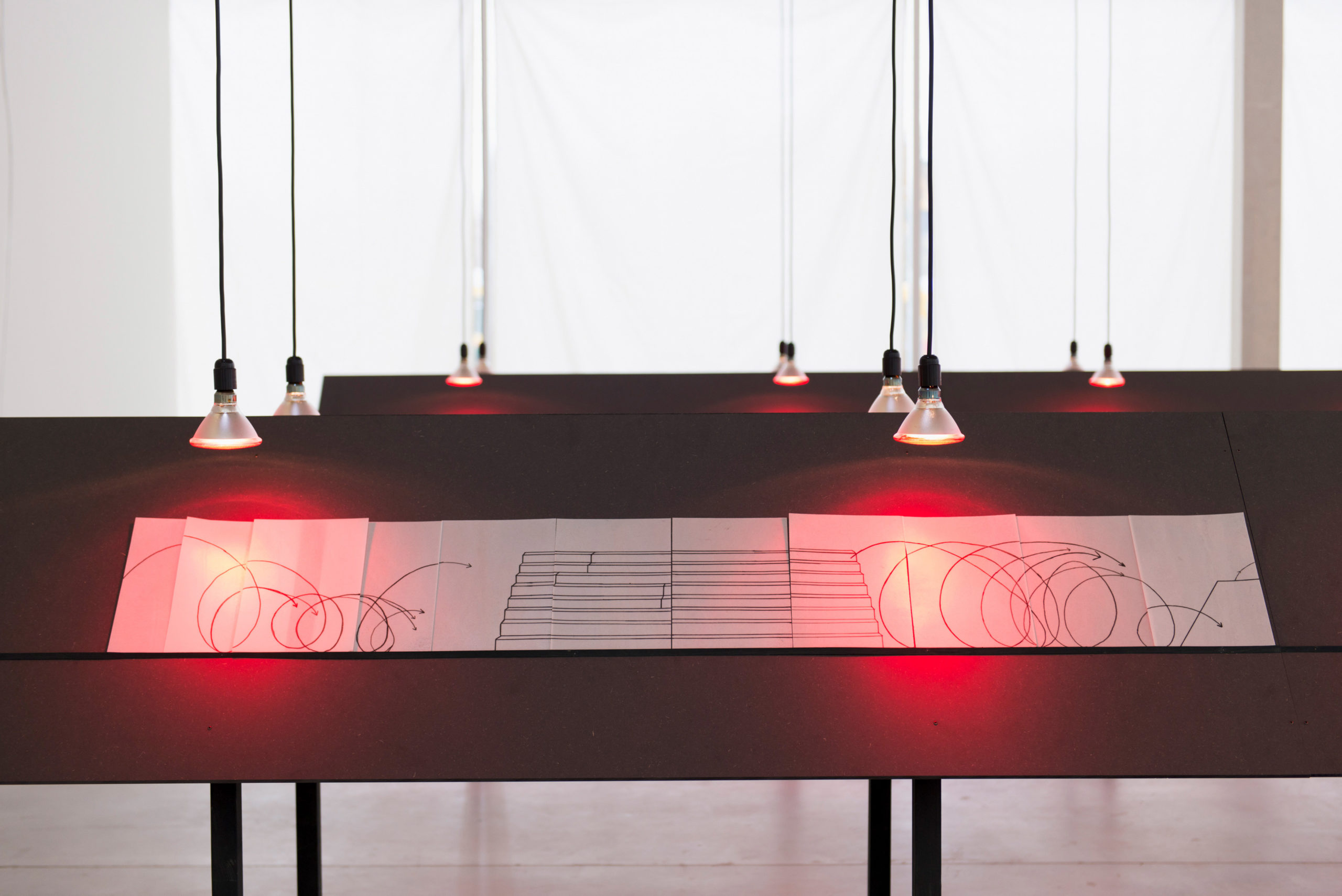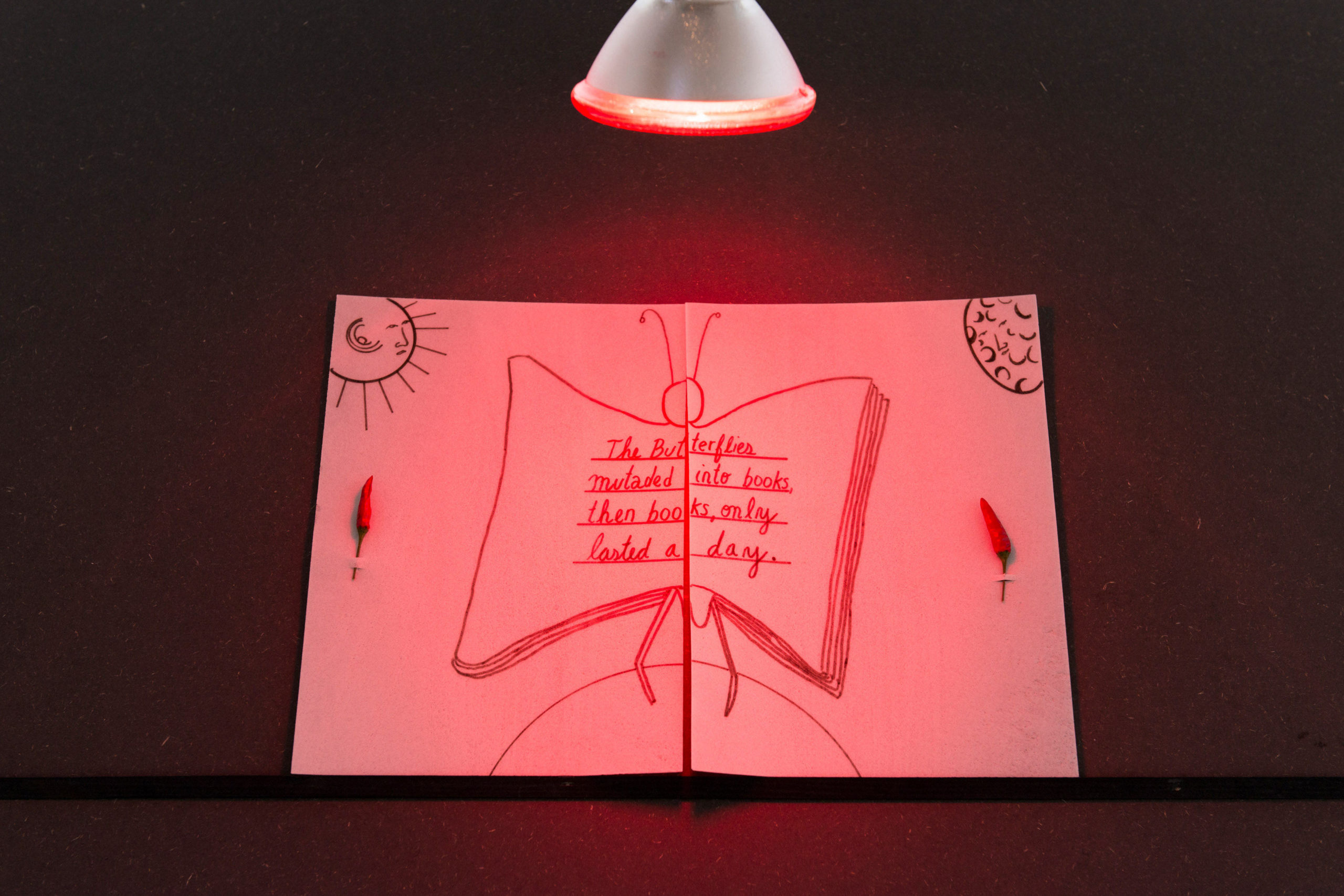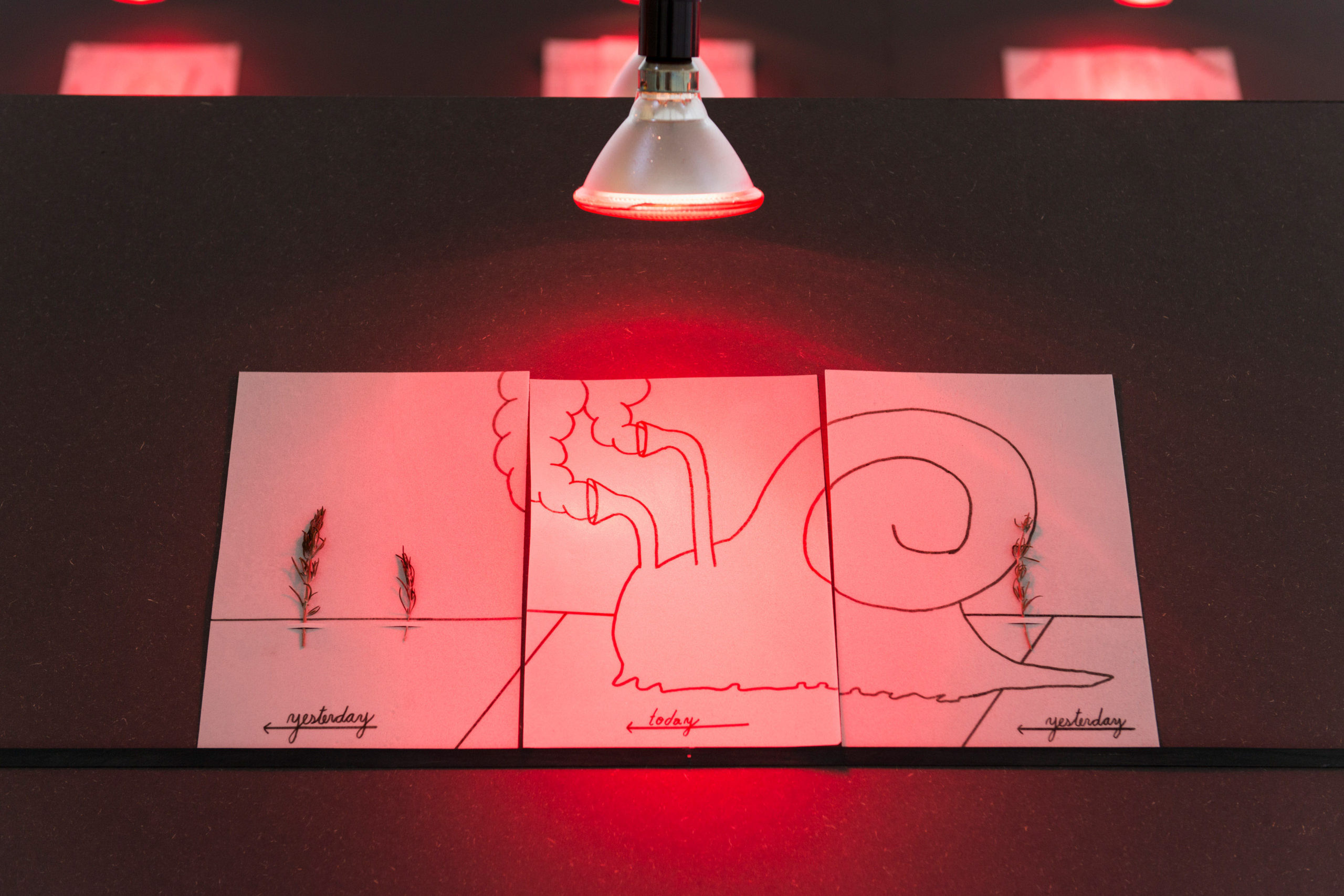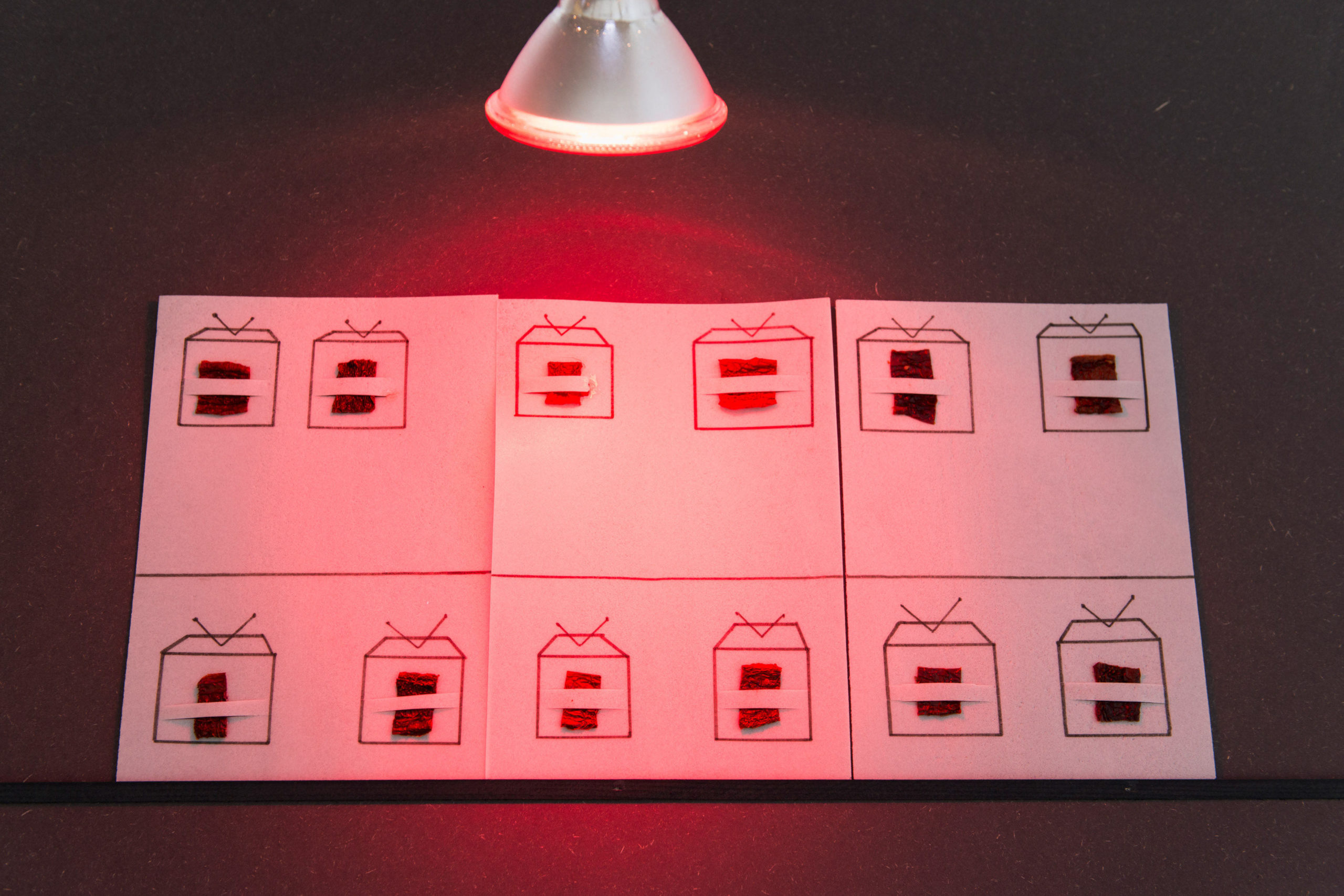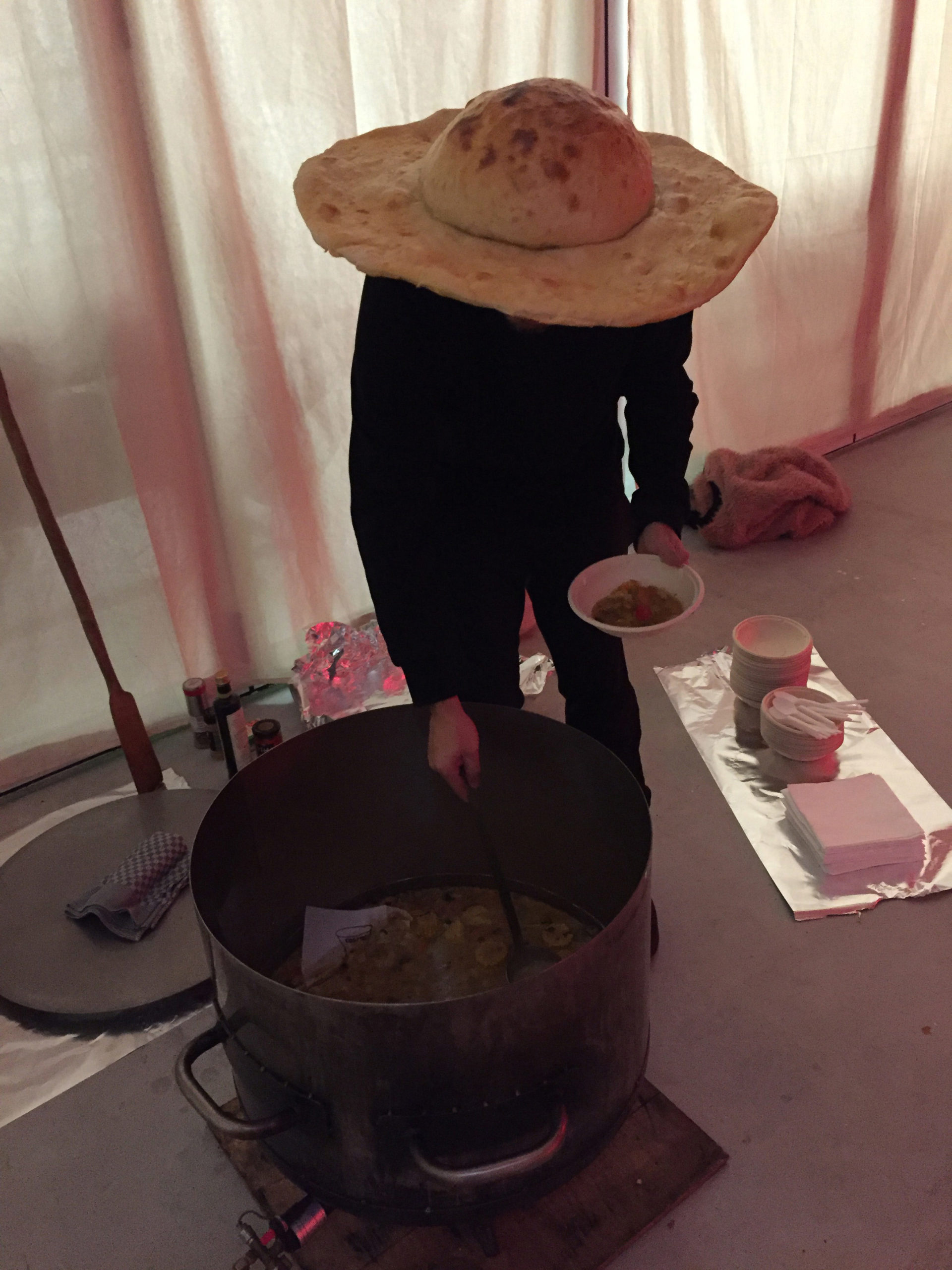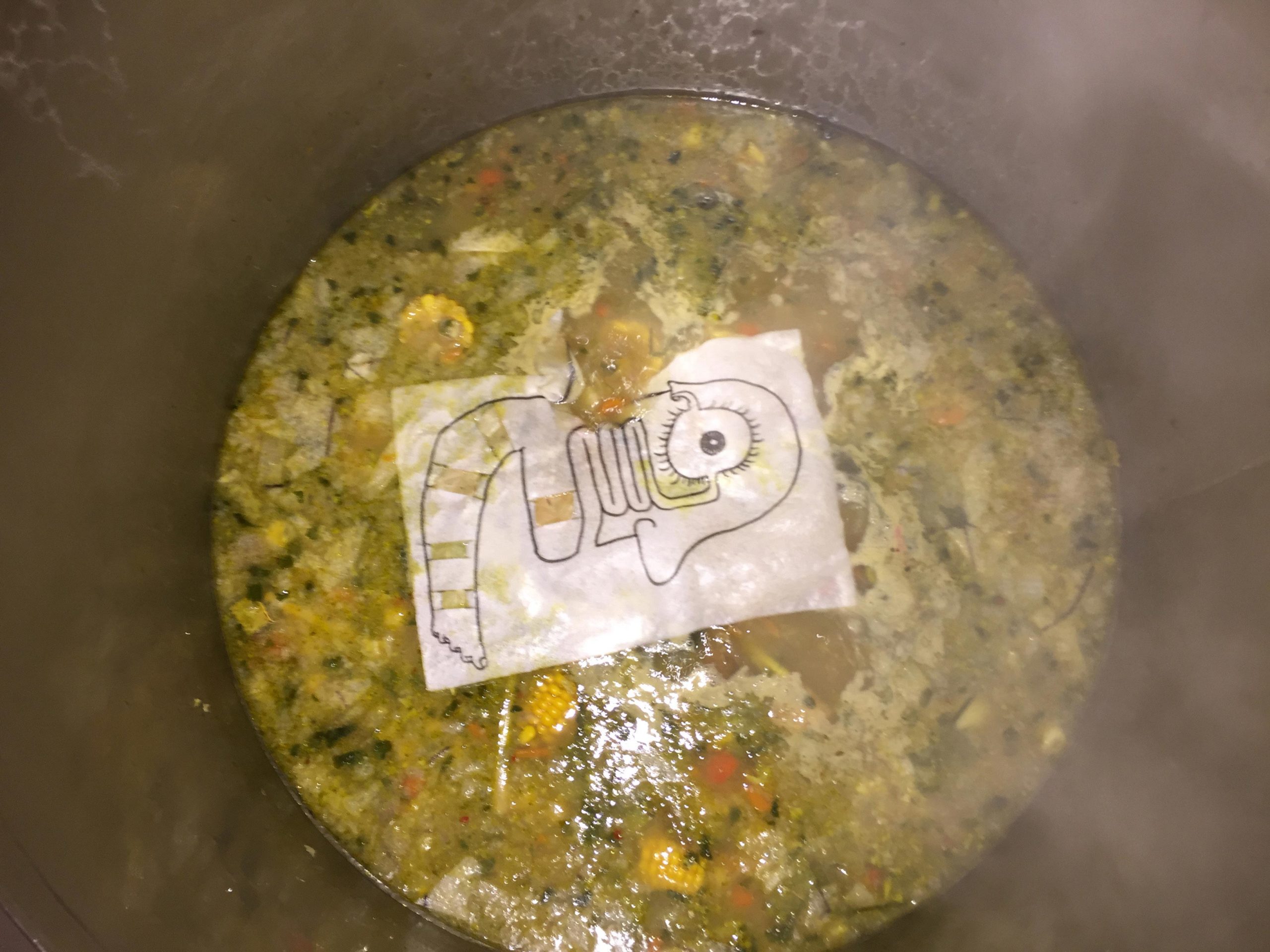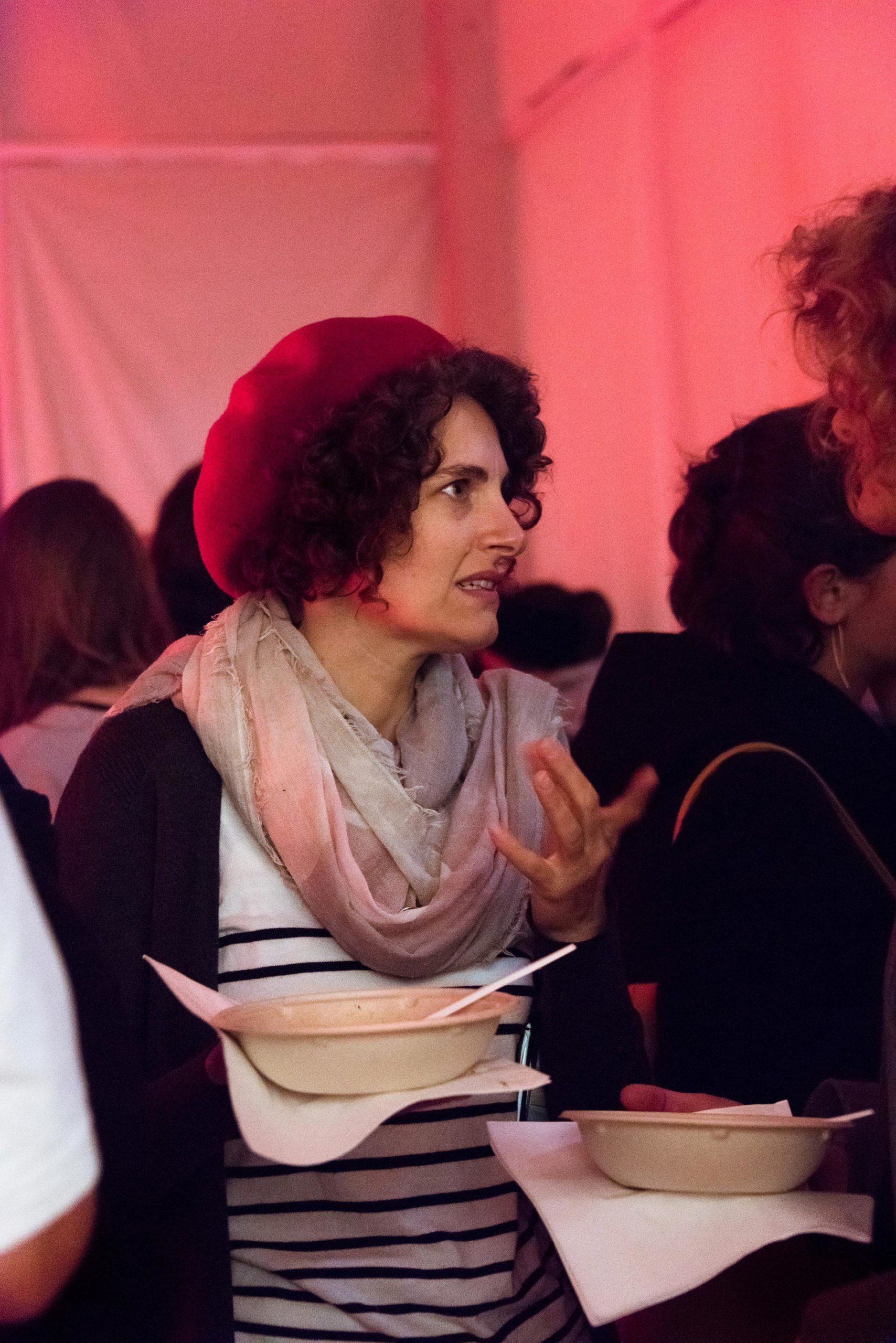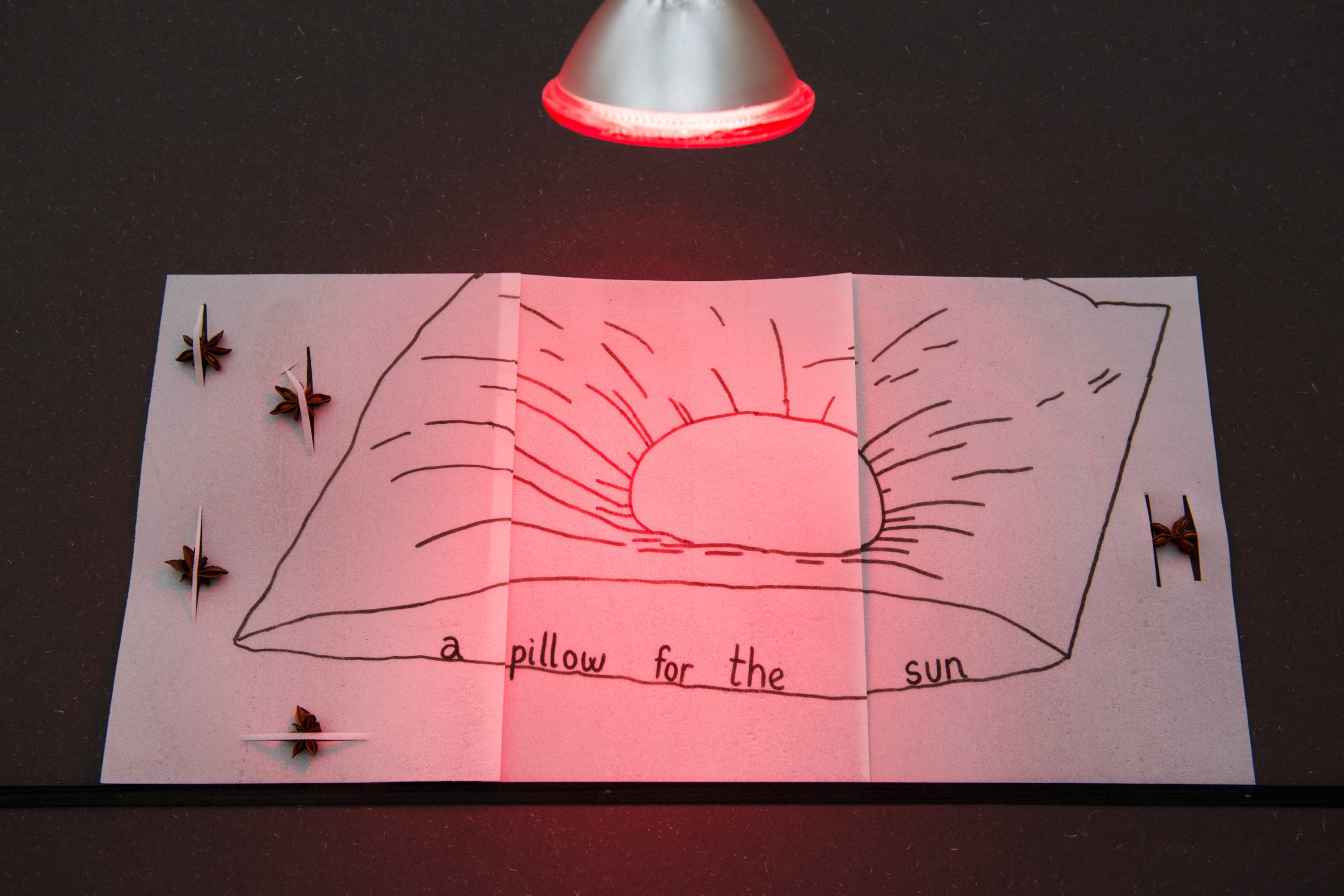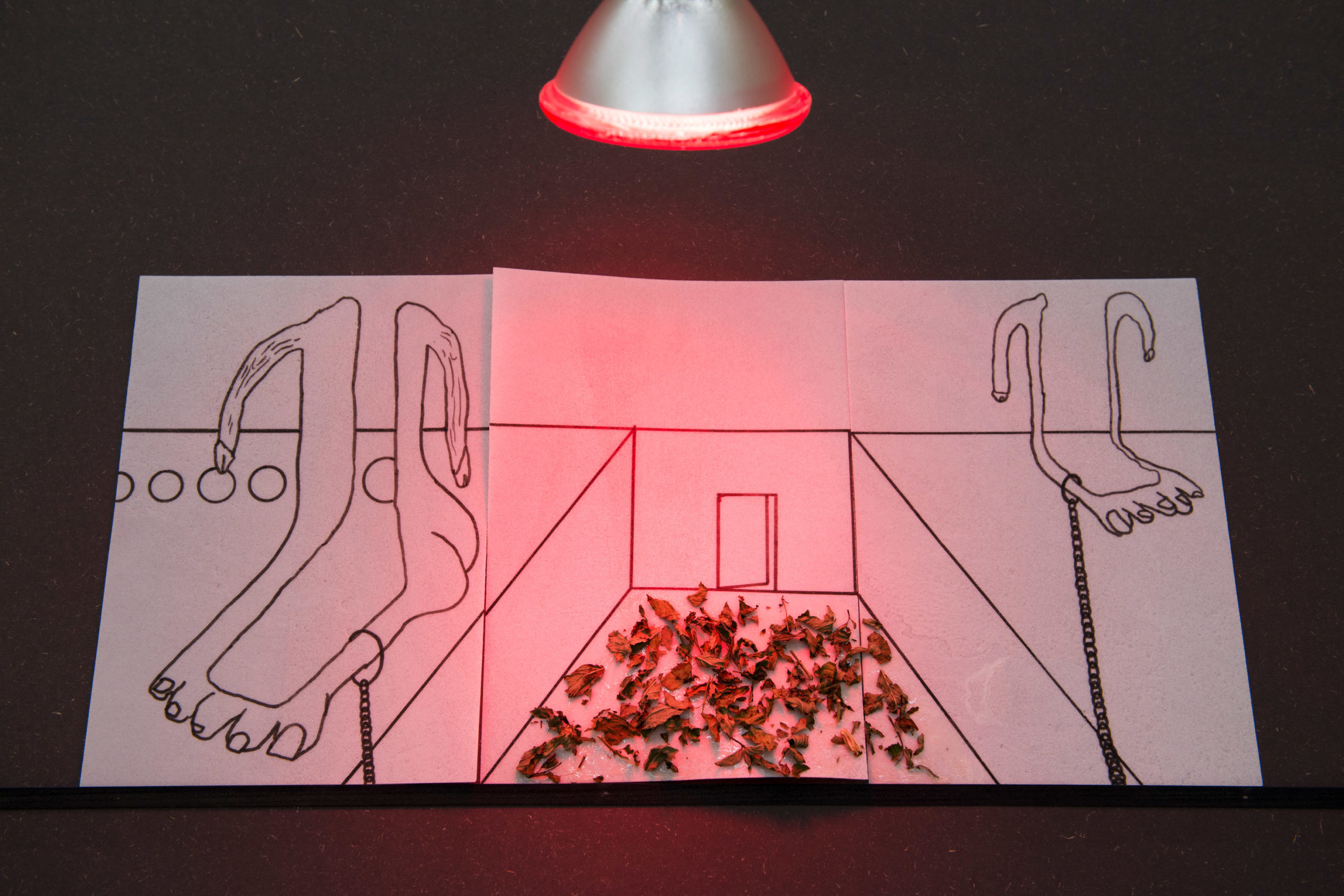into ourselves
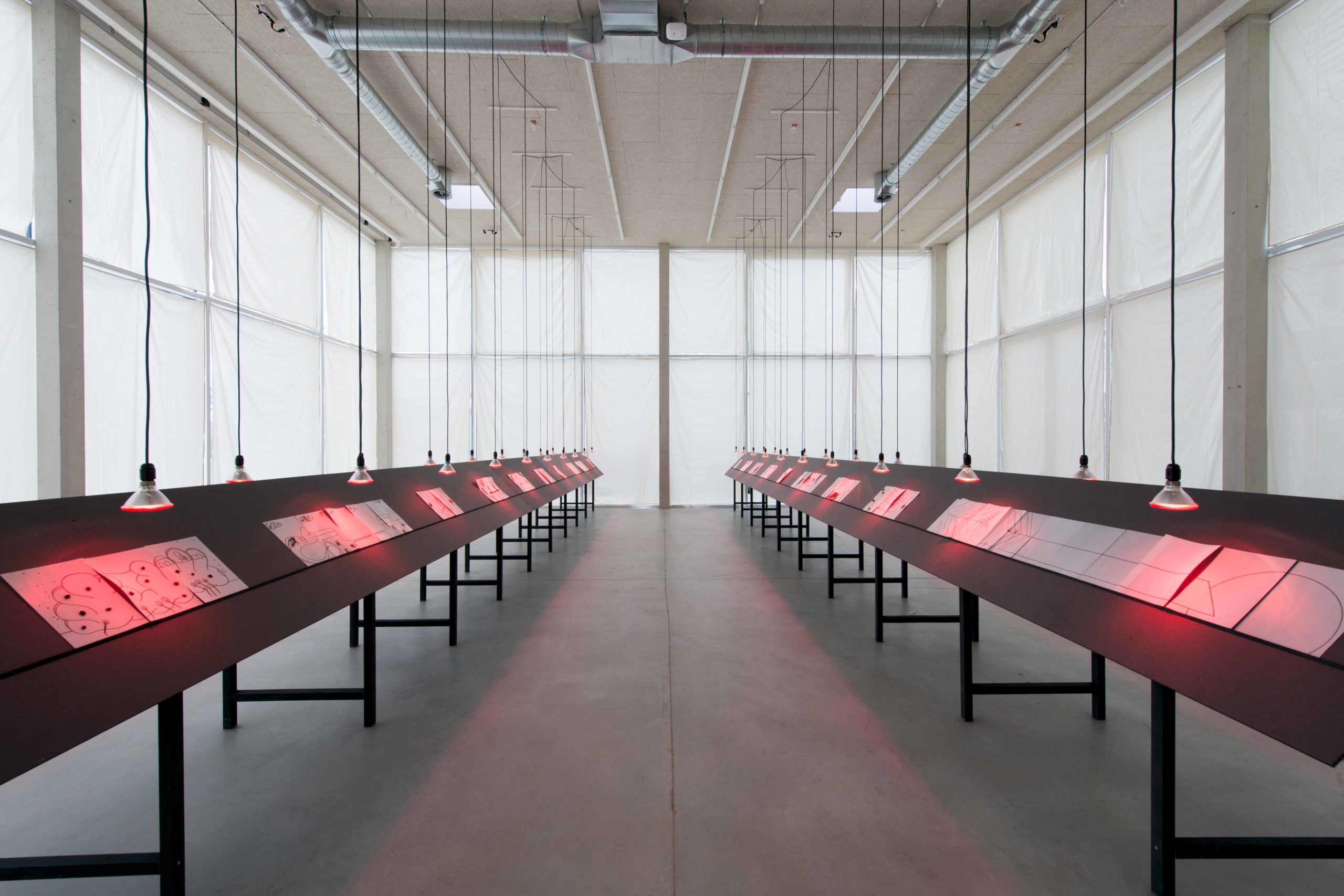
Der TANK
Art Institute FHNW Academy of Art and Design
Basel, Switzerland
Curated by Chus Martinez
2017
Into Ourselves travelled to:
The Drawing Center, NYC, US
Curated by Brett Littman & Rosario Güiraldes
2018
Exhibition Text by Chus Martinez at DerTank
I love the first lines of Gustav Metzger’s manifesto Auto-Destructive Art (1960):
Man In Regent Street is auto-destructive.
Rockets, nuclear weapons, are auto-destructive.
Auto-destructive art.
The drop drop dropping of HH bombs.
Not interested in ruins, (the picturesque)
Auto-destructive art re-enacts the obsession with destruction, the pummeling to which individuals and masses are subjected.
I really think Gustav Metzger already knew about the holographic principle, a very complex theory that, in a radical simplification, states that the cosmos does not destroy its own information. As far as quantum mechanics is concerned, information about states is never destroyed. According to Leonard Susskind, “all we know about physics would fall apart if information is lost.” So, no destruction is possible. This can be read in so many non-quantum ways, but we could claim it as very good news, since it is an invitation to stop trying to destroy, and this invitation does not come from a well-intended soul, but from the universe! However, we all know that the ways things go are far more complex in the precarious minds of humans. Therefore, Eduardo Navarro begins his opening with a soup, a soup for all those attending the opening on Friday, the November 10, from 6pm on. In the soup there is art: because he has been making edible art, and some of it will end up in the soup. Since destruction is not an option, transformation, digestion, and joy are at stake in this new project consisting of a large series of edible drawings. This very simple gesture of drawing on material that is compatible with our guts completely challenges any cry for immaterial art. Thinking about the power of the market, and the aggressiveness against complex thinking, art, and artists, the idea of not destroying but metabolizing art seems like an important proposal. It already expresses the end of the sweet years of bourgeois culture. We are now in a post-capital stage that makes it impossible, or very difficult, to know what can challenge the current situation, what can create a possible difference-to-capital. So eating art, making it part of our system, is a way to address the importance of radically transforming ourselves and of being ready to do, to name, to imagine a space for a different connectivity among humans and non-humans and politics all together. Once in our stomach, art may do the part and help us.
